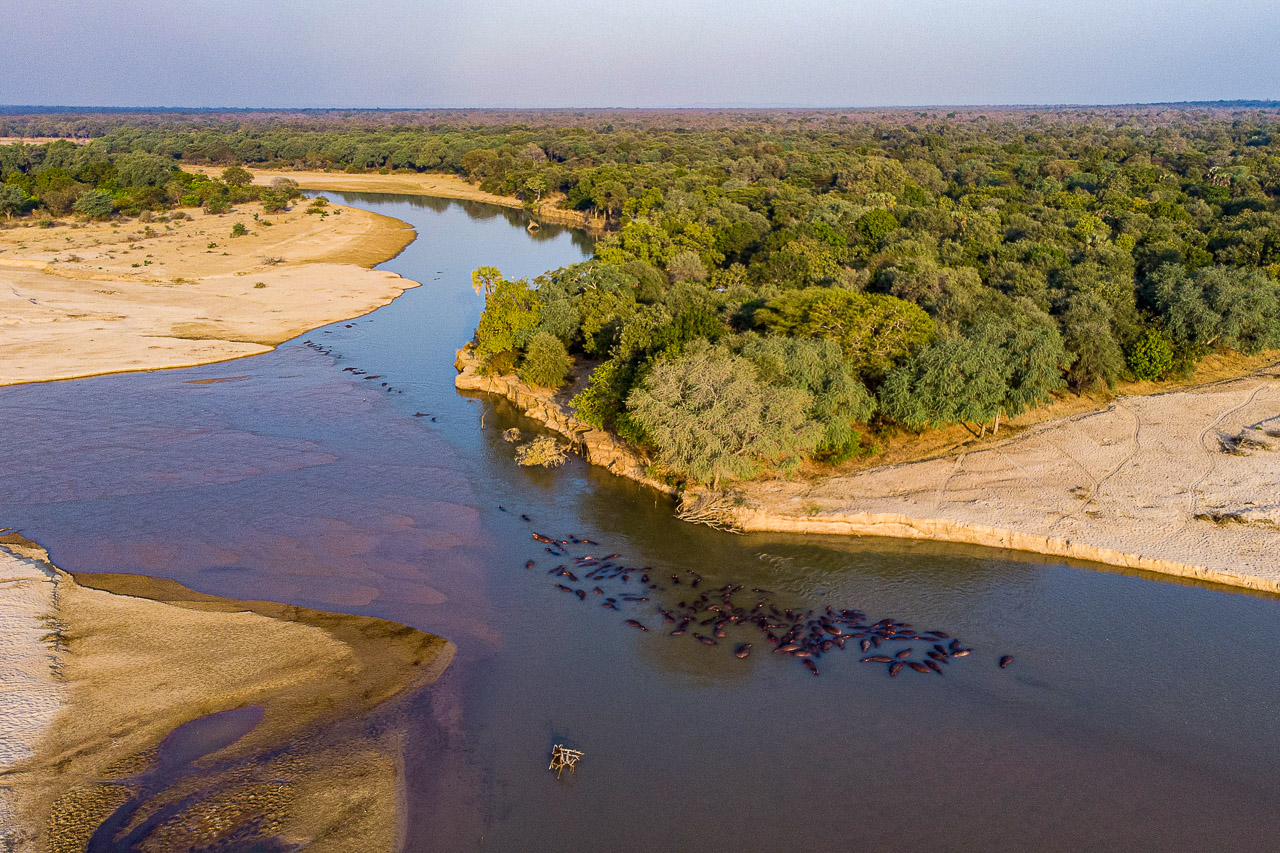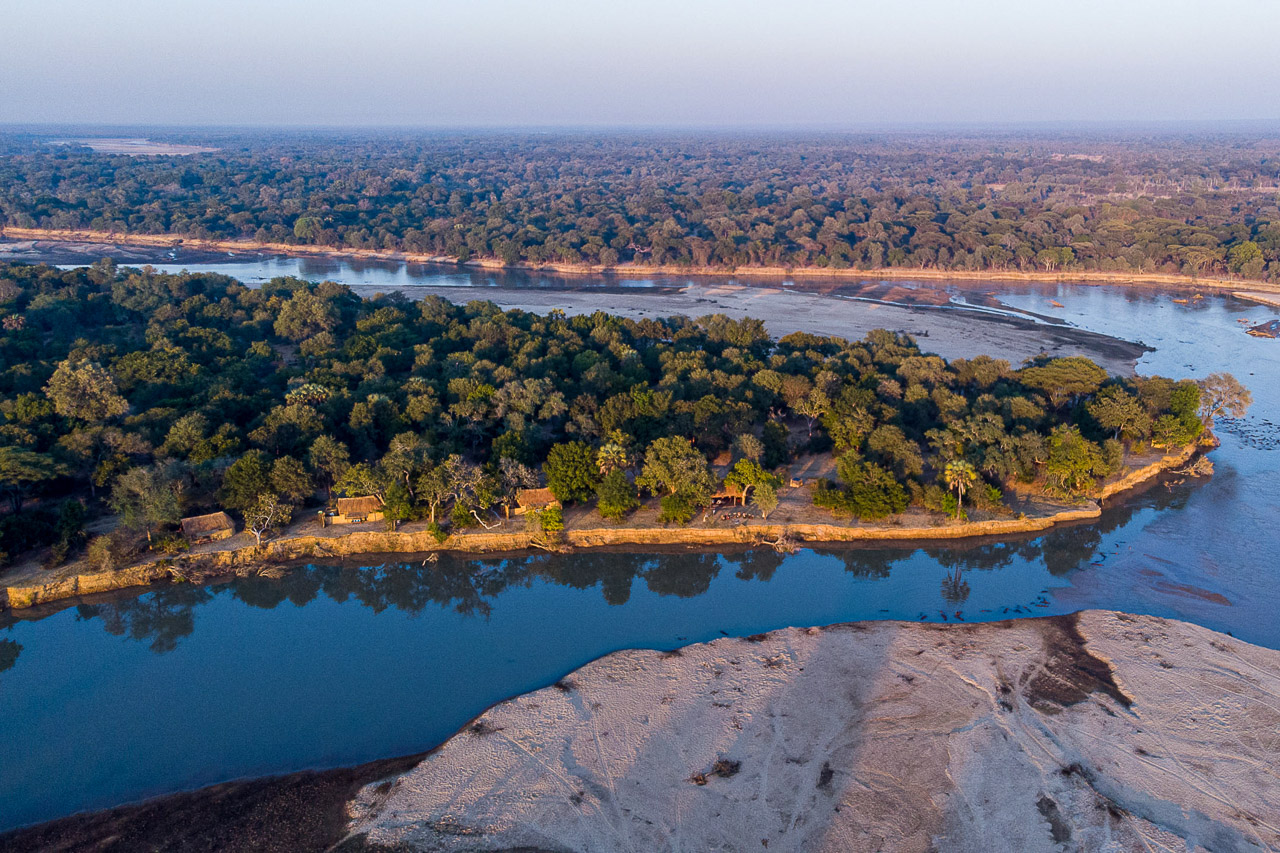Mwaleshi Camp
North Luangwa National Park
Accommodation
Mwaleshi Camp is one of Remote Africa Safaris' walking camps. After landing on the airstrip, guests are taken across the river to the four simple reed houses positioned in pairs either side of the main building. As with all bush camps, the interiors are simple yet functional, with running water and a hot shower upon request.
The friendly, comfortable main building houses a bar, seating area and dining area. Several canopied loungers are set out along the sands down by the riverside. This stretch of the river is free from crocodile and hippo so guests can safely cool down in the shallow water - don't forget your swimwear.
Location
Mwaleshi Camp is situated in North Luangwa National Park on the edge of the Mwaleshi River, some 10 km upstream from it's confluence with the Luangwa River. The Mwaleshi flows permanently and is an important source of life in North Luangwa National Park.
The park is accessed by air from Mfuwe Airport or Lukusi Airstrip, which is situated approximately 10 minutes from Tafika Camp. Flight time from Lukusi is 30 mins, and 45 mins from Mfuwe. A 10-minute vehicle transfer takes guests from Mwaleshi Airstrip to the camp.
Wildlife
North Luangwa is home to the same type of wildlife as South Luangwa, with several exceptions: The north has no giraffe, but the endemic Cookson's wildebeest, eland and hartebeest are more numerous; the latter two, however, are rarely seen. It's probably fair to mention that the concentration of game in South Luangwa is higher, this is made up for by the fact that North Luangwa is more remote - there's not another soul to be seen or another vehicle in sight.
During the 1960s, Zambia’s black rhino population, at almost 12,000 individuals, was the third-largest in Africa, with the North Luangwa ecosystem alone harbouring between 500-2,000. However, after two decades of heavy poaching, Zambia’s black rhinos were hurtling towards extinction. By 1998, several years after the last confirmed sightings, black rhinos were officially declared extinct in Zambia. Since 2003, 25 black rhinos have been translocated to the park, once again establishing a viable population of black rhino in Zambia with numbers now lying between 50 and 100 individuals.
Activities
The camp offers walking safaris with armed rangers solely.
The walks begin after breakfast at around 06:00. Guests return to camp between 09:00 and 10:00. A hearty lunch is served at 12, followed by a siesta and then an evening walk beginning at around 16:00. This walk is shorter than the first to ensure that everybody is back at camp before nightfall.
Lion, elephant, hippo and buffalo may be encountered on any of these walks, which usually take guests up one side of the river before bringing them back down the other after having waded across the water.
Good to know
Mark and Delia Owens, both of whom carried out studies in Botswana's Kalahari and recorded them in the book ‘The Cry of the Kalahari', found a new purpose here. They lived year-round between 1987 and 1996 fighting off poachers more or less single-handedly. It is thanks in part to their unwavering dedication that poaching has now been stopped almost completely. Their experiences are described in the book ‘Survivor's Song'.
Mwaleshi Camp on the map
Your alternatives
Learn more about these areas













